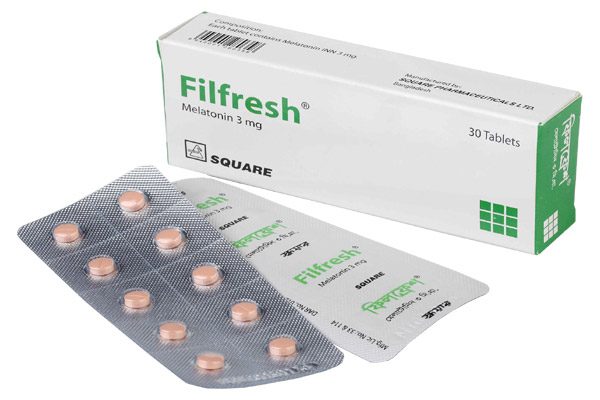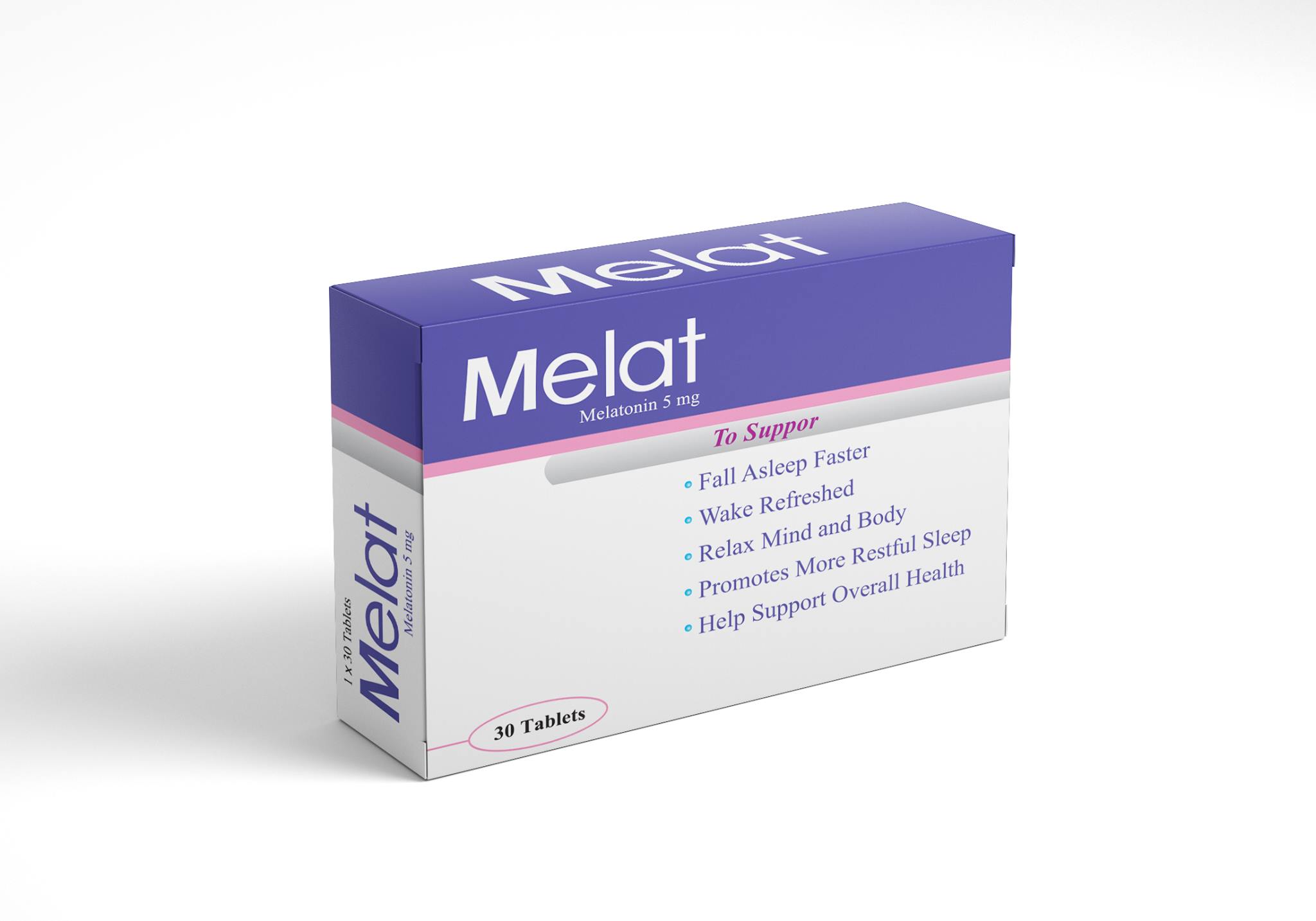
Filfresh Tablet-10's Strip
Tablet
Generics: Melatonin
Brand: Square Pharmaceuticals Ltd.৳ 30
Order By Call Or WhatsApp :
+88 01886-646186
About the Product
Full Description
Indications: Melatonin is used for numerous conditions but is showing the most promise in the short-term regulation of sleep patterns, including jet lag. Insomnia: Melatonin helps to induce sleep in people with- .Disrupted circadian rhythms (such as those suffering from jet lag or poor vision or those who work the night shift) .Low melatonin levels (such as some elderly and individuals with schizophrenia) .Children with learning disabilities who suffer from insomnia. Osteoporosis: Melatonin stimulates cells called osteoblasts that promote bone growth. In Menopause: Melatonin helps peri- or postmenopausal women to regulate sleep patterns. Eating disorders: Melatonin levels may play a role in the symptoms of anorexia. Attention Deficit Hyperactivity Disorder (ADHD): it may be effective in managing sleep disturbances in children with this condition. And Sarcoidosis Description: Melatonin is a hormone secreted by the pineal gland in the brain that helps regulate other hormones and maintains the body's circadian rhythm. It is involved in photic regulations of various kinds, including adaptation to light intensity, daily changes of light and darkness, and seasonal changes of photoperiod lengths. Darkness stimulates the production of melatonin while light suppresses its activity. Jet lag, shift work, and poor vision can disrupt melatonin cycles. Melatonin helps control the timing and release of female reproductive hormones. Many researchers also believe that melatonin levels are related to the aging process. In addition to its hormonal actions, melatonin has strong antioxidant effects. It also helps strengthen the immune system.




